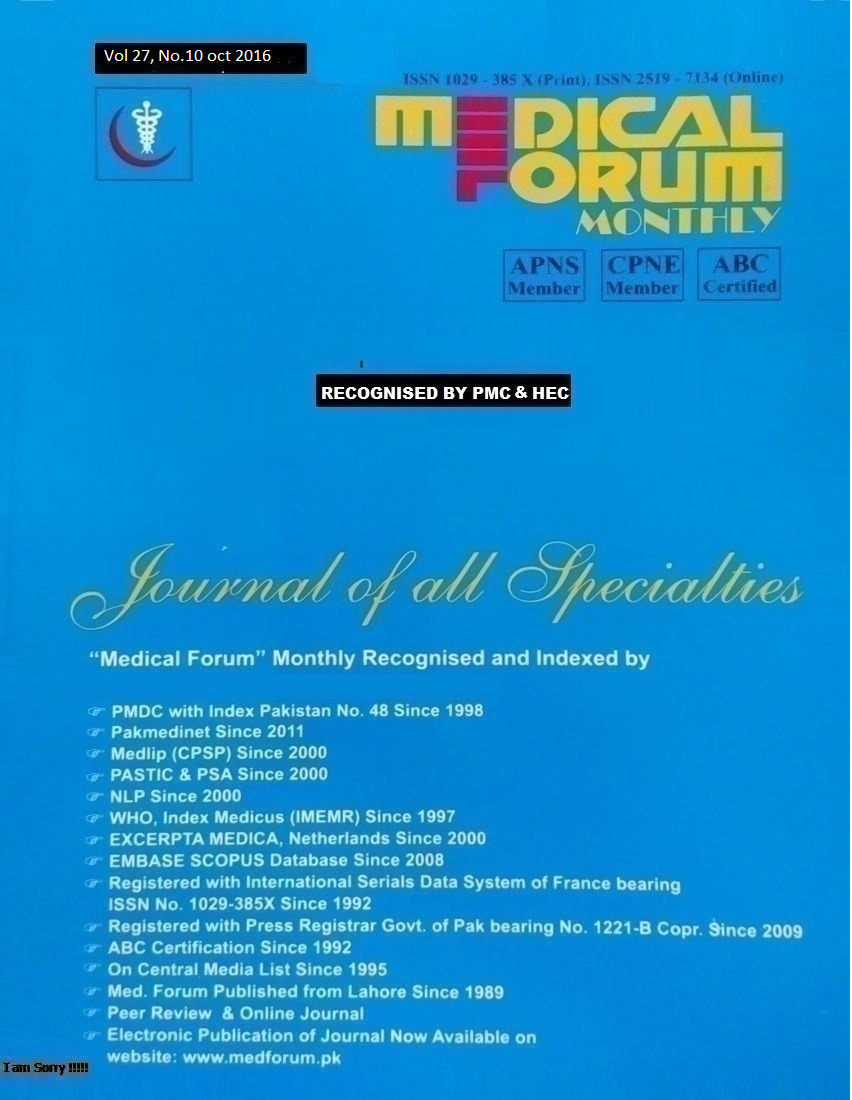
2. Studies on Metabolic Evaluation of Urinary Risk Factors in Southern Punjab, Pakistan
Shafiq Ahmad1, Muhammad Aslam Shad2 and Tariq Mahmood Ansari2
ABSTRACT
Objective: The aim of the present study was to assess the metabolic abnormalities such as hypercalciuria, low urine volume , hypocitraturia, hyperoxaluria and hyperuicosuria in recurrent stone formers of southern Punjab as these abnormalities vary in different populations.
Study Design. Prospective study.
Place and Duration of Study: This study was conducted at the Department of Biochemisty, Bahauddin Zakarya University Multan and Nisthar Medical College Multan from December 2010 to January 2012.
Materials and Methods: One hundred adult patients who were known idiopathic recurrent calcium oxalate renal stone formers (RCSFS) were selected from the various districts of the Southern Punjab, Pakistan. Twenty four hour urine collections were made while the subjects were on their usual diet. Samples were collected in clean polyethylene containers. Volume was measured using a graduated cylinder. Hydrochloric acid N/10 HCl (1 ml/100 ml of urine) was added to stop auto-conversion of ascorbic acid to oxalate during storage. Thymol was added as a preservative.
Results: Common metabolic change found in the present work was hypercalciuria. It was found in 38 patients (38%) it was isolated in 25 cases and associated with other changes in 13 patients.
Conclusion: Most of the patients were noted to have metabolic abnormalities. Hypercalciuria, low urine volume, and hypocitraturia were common metabolic defects. Hypercalciuria was the most frequent risk factor.
Key Words: Renal calculi, risk factors, hypercalciuria, low urine volume, hyperoxaluria, hypocitraturia, hyperuricosuria, Southern Punjab, Pakistan
Citation of article: Ahmad S, Shad MA, Ansari TM. Studies on Metabolic Evaluation of Urinary Risk Factors in Southern Punjab, Pakistan. Med Forum 2016;27(10):7-11.
